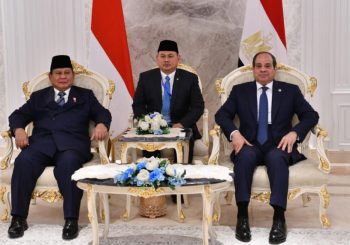A Cairo criminal court has scheduled 7 May as the start date for the expedited trial of a defendant accused of kidnapping, assaulting, and murdering a Sudanese infant.
In late April, the body of 10-month-old Janet Jumaa was found in a public park close to her residence.
According to Egypt’s Public Prosecution Office, in a statement released on Wednesday, 1 May, revealed details of its investigation, the assailant then took her to a nearby park where he assaulted and killed her. If found guilty, the accused could face the death penalty.
This tragic incident unfolds against a backdrop of heightened anti-Sudanese sentiments in Egypt. The country has witnessed a significant influx of Sudanese migrants following the onset of civil war in Sudan over a year ago.
Egypt has historically been a sanctuary for individuals escaping conflict and poverty in sub-Saharan Africa and the Middle East. The International Organization for Migration (IOM) estimates that over nine million migrants reside in Egypt, with roughly half of them being Sudanese.
Yet, only 600,000 of these migrants are considered refugees, and the majority hold legal resident status, as outlined in an April report by the UN refugee agency (UNHCR).
Since the onset of Sudan’s civil war in April of the previous year, approximately 1.5 million Sudanese individuals have sought refuge in neighboring countries. Around 500,000 have fled to Egypt, according to UNHCR data issued on April 12th.
Before the outbreak of the conflict, the number of Sudanese refugees and asylum seekers registered with UNHCR in Egypt was a mere 60,000.
The majority of these refugees, predominantly women and children, embarked on perilous and grueling journeys to Egypt, often lacking resources and in dire need of essentials such as food, shelter, and medical attention, as emphasized by the UN.






Comments (3)
[…] fast-tracked trial started on 7 May, and on 9 May, the court ordered the defendant to undergo a psychiatric […]
[…] post Egypt Sets 7 May for the Murder Trial of Sudanese Infant first appeared on Egyptian […]